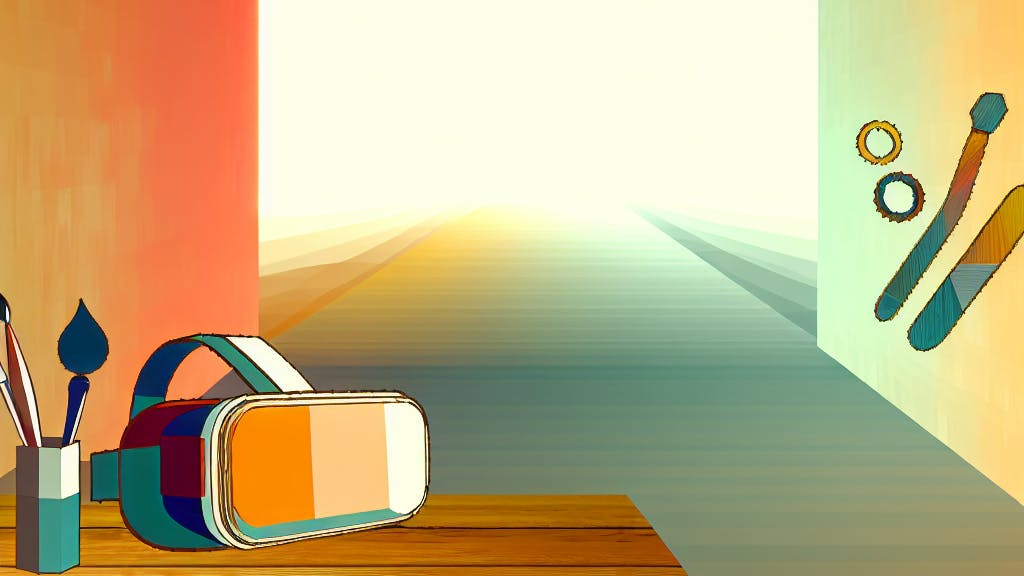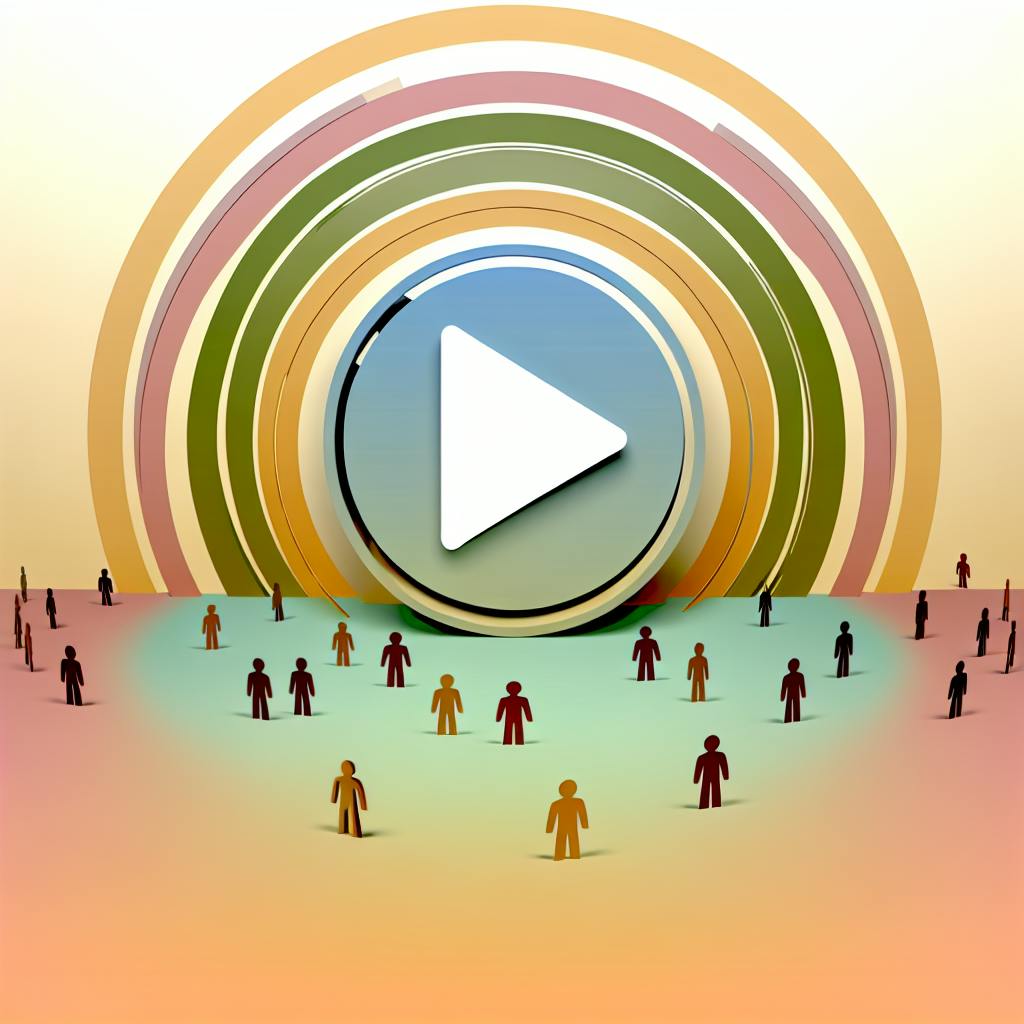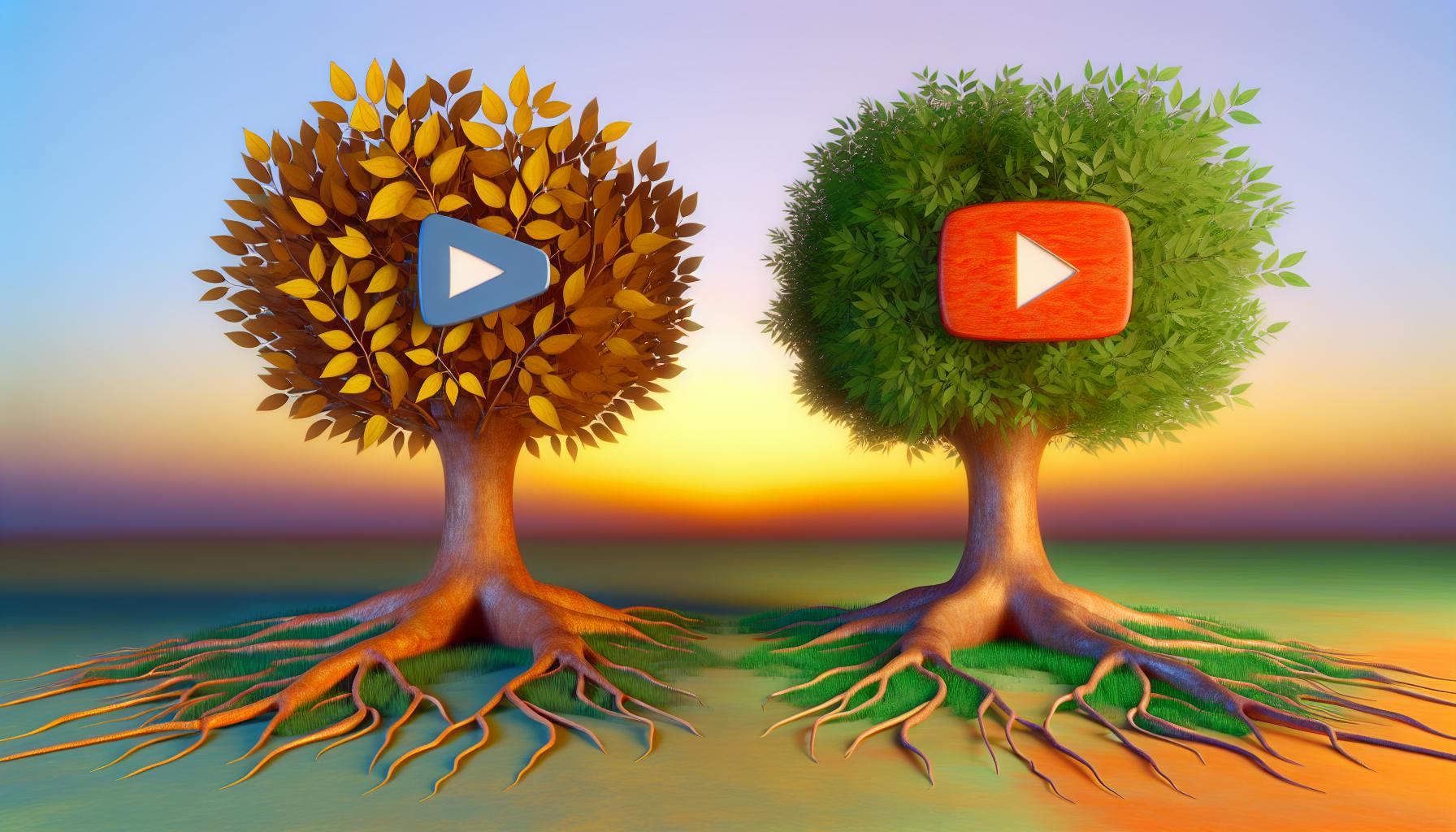In Bailey Parnell's TED Talk titled 'Is Social Media Hurting Your Mental Health?', we dive deep into the impact of social media on mental well-being. Here's what you need to know:
- Social Media's Impact: Excessive use can lead to anxiety, sadness, loneliness, and low self-esteem due to comparison, fear of missing out (FOMO), and cyberbullying.
- Speaker's Background: Bailey Parnell, with over 10 years of experience in social media, explores its effects and offers strategies for healthier use.
- Strategies for Healthier Use: Includes auditing your social media diet, creating a better online experience, and balancing online interactions with real-life activities.
- Key Themes: The talk addresses the pursuit of social currency, the fear of missing out, and the erosion of face-to-face interactions, suggesting mindfulness in social media use to mitigate negative effects.
This summary encapsulates the essence of Parnell's insights on navigating the complexities of social media to safeguard mental health.
Speaker Backgrounds
Bailey Parnell is the person talking in the TED Talk "Is Social Media Hurting Your Mental Health?" She knows a lot about social media because she's been working with it for more than 10 years, helping big companies use it better. She even started her own company, Skilled in Social, to teach companies how to use social media without harming people's mental health.
Parnell noticed that too much social media can make people feel anxious, sad, lonely, and worried about missing out on things (this is called FOMO). So, she decided to look into why this happens. She asked questions like:
- How does staring at our screens all the time change the way we think?
- Why do we care so much about getting likes and comments?
- What does endless scrolling do to our mood?
Now, Parnell goes around telling people and businesses how to use social media in a way that's good for them. In her TED Talk, she talks for about 18 minutes on how social media can be both good and bad. But she doesn't just talk about the problems. She also gives real advice on how we can use social media better, like taking breaks, paying attention to how it makes us feel, and spending more time with people in real life.
Her message is simple: we can take control back from our screens and make social media work for us, not against us.
Case Study 1: Social Comparison
Social comparison means looking at other people's lives on social media and feeling like we don't measure up. Experts like Allison Graham and Bailey Parnell talk about how this can make us feel pretty bad about ourselves.
The Negative Impacts of Social Comparison
When we see all the perfect moments from other people's lives on social media, we often feel worse about our own. This can cause:
- Feeling anxious or sad
- Not feeling good about how we look
- FOMO (Fear Of Missing Out)
- Thinking our lives or what we've done isn't good enough
Graham points out that teenage girls can have it especially tough. They might feel more anxious, sad, and even think about harming themselves if they spend a lot of time on social media.
Why We Compare Ourselves
Why do we keep comparing ourselves? Parnell gives a few reasons:
- We think having more money, followers, or likes means we're successful and happy. But studies say that's not true.
- We naturally want to be well-liked or important. Before, this was just among a few people we know. Now, we compare ourselves to thousands online.
- Social media is built to keep us looking and comparing. It uses tricks to make us want to keep scrolling.
Creating a Healthier Relationship with Social Media
The good part is we can change how we use social media to feel better. Here's how, according to Parnell and Graham:
- Cut down how much time you spend on social media
- Stop following accounts that make you feel bad
- Use social media to talk to real friends
- Notice how different social media sites make you feel
- Do more things you like and spend time with people who make you feel good
By being more mindful about how we use social media, we can still enjoy being connected without hurting our mental health.
Case Study 2: Addiction
Social media can really pull us in, almost like we can't help but check it all the time. Let's dive into why it's so hard to put down our phones and what this does to us.
How Social Media Hijacks Our Brains
Psychologists say that social media companies use tricks to make us keep coming back:
-
Variable rewards: It's like waiting for a surprise. Sometimes we get likes or comments, and it feels good. This keeps us checking over and over.
-
Social reciprocity: When someone messages us, we feel we have to reply right away. This keeps us glued to our screens.
-
Autoplay features: Videos that play one after the other make it hard to stop watching.
The Impacts of Social Media Addiction
Being on social media all the time can mess with our lives in a few ways:
-
Loss of control: We can't help but check our phones, even when we know we should be doing something else.
-
Isolation and depression: If we're always online and not hanging out with people in real life, we can start to feel pretty lonely and sad.
-
Distraction and loss of focus: It's hard to concentrate on anything when our phones keep beeping with new updates.
-
Poor sleep: Looking at our phones before bed can make it hard to fall asleep.
Regaining Control
Even though social media is designed to keep us hooked, we can take steps to not let it control us:
-
Check which apps you spend the most time on and think about cutting back.
-
Set a daily limit for how much time you spend on social media.
-
Use the do-not-disturb mode on your phone during work or sleep.
-
Try new hobbies or activities that don't involve screens.
-
Take breaks from social media every now and then.
By being more mindful about how we use social media, we can enjoy it without letting it take over our lives.
Case Study 3: Anxiety and Depression
Social media is often linked to feeling more anxious and sad, especially in teenagers and young adults. Experts like Ria Philip and Naiya Livingston have shared their thoughts on this.
The Vicious Cycle of Social Media and Mental Health
Being on social media a lot can make people feel worse, but feeling down can also lead to more social media use. Here's a simple breakdown of this cycle by Philip:
-
Spending too much time on social media can make you feel anxious or depressed. Scrolling all the time exposes us to stressful stuff.
-
When people are feeling down, they might use social media more to try and feel better or to distract themselves.
-
But using social media as a way to deal with these feelings only makes things worse, making the person feel even more down.
Philip points out this is a big problem for teenagers who think social media will make them feel better but end up feeling sadder.
Key Factors That Contribute to Poor Mental Health
Livingston highlights a few reasons why social media can make us feel bad:
-
Social comparison: Seeing others who seem to have perfect lives can make us feel bad about ourselves.
-
Cyberbullying: Being bullied online really hurts our feelings and makes us feel unsafe.
-
FOMO: Feeling left out because we see friends doing things online can make us feel bad.
-
Unrealistic portrayals: People often only share their best moments online, which can make our everyday lives seem boring in comparison, making us feel worse.
Steps to Improve Mental Health
Philip and Livingston suggest some ways to feel better by changing how we use social media:
-
Take breaks from social media now and then. This can help us feel better overall.
-
Limit how much time we spend on social media every day to avoid scrolling for too long.
-
Follow accounts that make us feel good, not bad.
-
Use tools that help us limit our time on social media.
-
Do other things that make us happy, like sports, hobbies, or hanging out with friends in real life.
Livingston says we shouldn't see social media as the bad guy but find a balance. By being more mindful, we can still enjoy it and stay connected without it hurting our mental health.
sbb-itb-bc761f5
Analysis of Common Themes
In her TED Talk, Bailey Parnell talks about some big ideas on how social media affects our mental health. Let's break down these key points to understand them better.
The Pursuit of Social Currency
One important idea Parnell talks about is "social currency." This means the likes, comments, followers, and views we get online. We often think these numbers show how much we're worth or how successful we are.
- We mix up being popular with being happy. More likes seem to mean a better life.
- We love getting likes and comments because it feels like people approve of us.
- Counting friends and measuring success in online numbers can hurt real-life friendships.
Parnell tells us to see social currency as just online numbers, not real value. True worth comes from real connections and liking ourselves.
The Fear of Missing Out (FOMO)
FOMO, or the fear of missing out, is another big point. Social media shows us all the things we're not doing, which can make us feel bad:
- We feel left out when we see others having fun without us.
- Seeing others' travel photos or job wins can make us doubt ourselves and feel like we're not doing enough.
- Always seeing something else we could be doing makes us stressed.
To deal with this, Parnell says to think about how certain sites or friends make you feel. Make your feed a place that inspires you, not makes you feel overwhelmed. Focus on real-life friends more than online ones.
The Erosion of Face-to-Face Interactions
Using social media too much can mean we don't spend enough time with people in real life. This can make relationships weaker. Here's why, according to Parnell:
- We don't work on real friendships as much. We forget how to be good friends without screens.
- When we're with friends but on our phones, we miss out on deep talks.
- Relying too much on texting or social media means we're not as good at understanding people's feelings or body language.
Parnell suggests being more in the moment with friends, taking breaks from screens, and doing things that help us connect in person.
By looking at these main ideas in Parnell's talk, we understand the problems with using social media too much and ways to fix them. We can change how we see online popularity, FOMO, and our internet habits. Using social media more thoughtfully and focusing on real friendships can make us feel better.
Methodology for Evaluating Impact
When looking into how social media affects our mental health, various methods were used to figure things out.
Psychological Assessments
Experts looked at different groups of people to see how social media was impacting them:
-
Teenage girls: Research focused on how much anxiety, sadness, loneliness, and issues with self-image were seen in teenage girls who used social media a lot. They either asked the girls directly or used special tests.
-
Young adults: They gave young adults surveys and interviews to check on their mood, sleep, ability to concentrate, and overall happiness, comparing these to how much social media they used.
-
Cross-demographic: Surveys of all kinds of people linked the amount of social media use with feelings of anxiety, sadness, feeling alone, and not being happy.
Comparative Analysis
Researchers looked at people who used social media a lot versus those who didn't much to spot differences:
-
Mental health: People who used social media more often had more anxiety, sadness, loneliness, and issues with how they see their bodies.
-
Lifestyle factors: The more-social media group also had less sleep, got distracted easier, and didn't connect as well with people face-to-face.
-
Addiction factors: People addicted to social media couldn't stop using it, felt bad when they couldn't get on, and kept using it even when it caused problems.
User Studies
Tests were done to see what happens when people change how they use social media:
-
Usage limits: When people used social media less each day, they felt happier, less anxious, slept better, and could focus more.
-
Digital detox: Taking breaks from social media for 1-2 weeks made people's mental health better, helped them concentrate, sleep better, and connect more in real life.
-
Following habits: Making their social media feeds more positive made people feel better about themselves and compare themselves less to others.
By using these methods, experts found out a lot about how social media can make us feel bad and what we might do to feel better. They learned what makes some people more likely to have problems and how making small changes can help.
Strategies for Mitigating Effects
Social media can sometimes make us feel bad, but there are ways to make it better for our mental health. Experts like Bailey Parnell share tips on how we can manage our social media use better.
Auditing Your Social Media Diet
Start by looking closely at how you use social media. Ask yourself these questions:
- Which apps do I spend the most time on?
- Who am I following and why?
- How do I feel after using certain apps or seeing certain posts?
- When and why do I check social media? Is it out of habit or for a specific reason?
Noticing these patterns can help you understand how social media fits into your life. You might find some accounts or habits that aren't helping you feel good.
Creating a Better Online Experience
After figuring out how social media affects you, make some changes:
- Stop following accounts that make you feel bad or jealous
- Start following accounts that make you happy or inspire you
- Limit how much time you spend on social media each day
- Turn off notifications so you're not always pulled back in
- Use features on your phone that keep you from getting distracted during work or sleep
Choosing to follow more positive accounts can help make social media a source of inspiration.
Modeling Good Behavior Offline
It's also important to balance your online life with real-life activities:
- Hang out with friends and family without phones getting in the way
- Do things that get you talking and interacting with people face-to-face, like playing games or sports
- Go to events that match your interests
- Find local groups or clubs with people who like the same things you do
Having strong connections in the real world gives us a healthy balance and helps us not to get too caught up in the online world.
By being mindful of how we use social media and making sure we have a good balance of online and offline activities, we can enjoy being connected without it hurting our mental health.
Conclusion
Bailey Parnell's TED Talk gives us a deep look into how social media can affect our mental health, especially for teenagers and young adults. She shows us that using social media too much can make us feel anxious, sad, lonely, and bad about how we look.
But there's good news too. Parnell shares tips on how we can use social media in a healthier way. This means paying attention to how it makes us feel, not spending too much time on it, hanging out more with people in real life, and making sure our social media feeds are full of things that make us feel good. If we're careful about how we use social media, it can actually help us feel better.
As we use social media more and more, it's really important to talk about how it affects us. By understanding both the good and bad parts, we can make choices that help us stay connected without hurting our mental health. We'll need to keep learning and talking about this as we figure out the best ways to live with social media in our lives.



